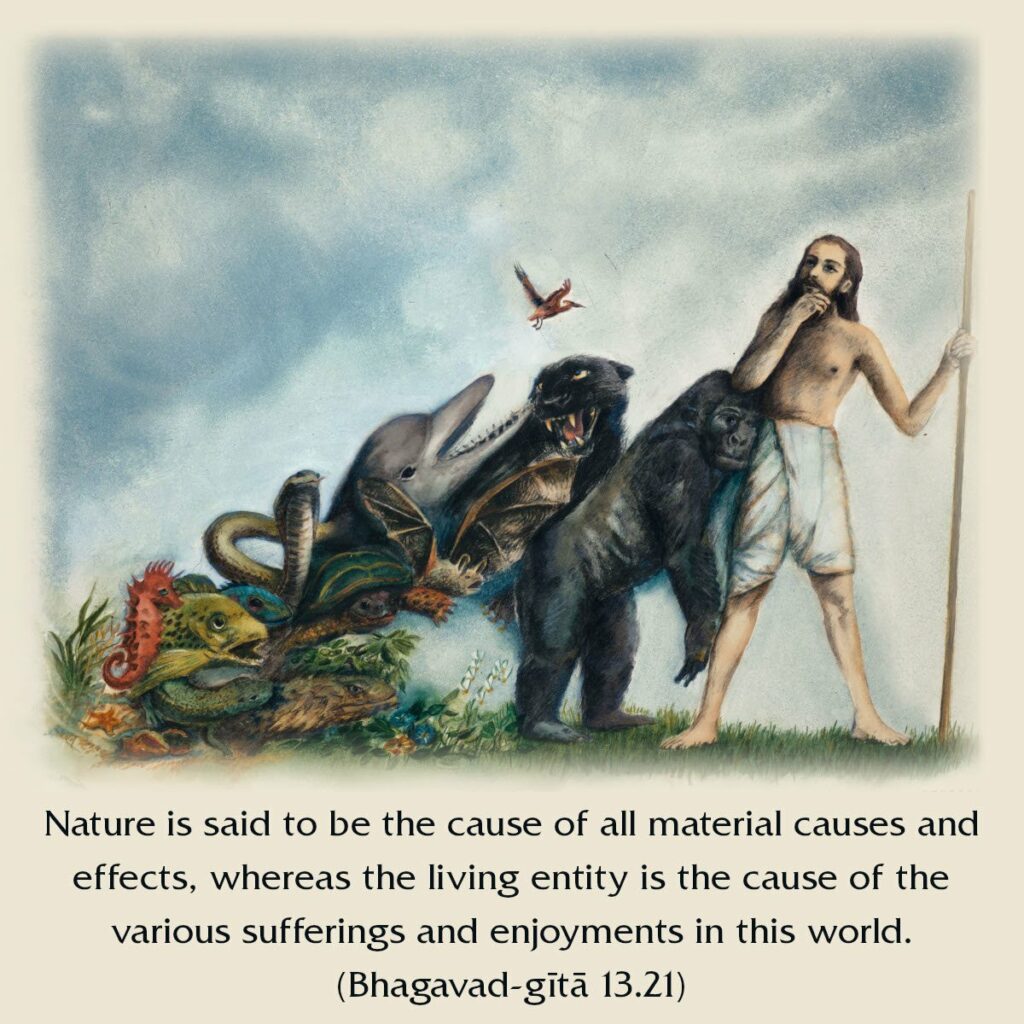कार्यकारणकर्तृत्वे हेतु: प्रकृतिरुच्यते |
पुरुष: सुखदु:खानां भोक्तृत्वे हेतुरुच्यते || 21||
kārya-kāraṇa-kartṛitve hetuḥ prakṛitir uchyate
puruṣhaḥ sukha-duḥkhānāṁ bhoktṛitve hetur uchyate
kārya—effect; kāraṇa—cause; kartṛitve—in the matter of creation; hetuḥ—the medium; prakṛitiḥ—the material energy; uchyate—is said to be; puruṣhaḥ—the individual soul; sukha-duḥkhānām—of happiness and distress; bhoktṛitve—in experiencing; hetuḥ—is responsible; uchyate—is said to be
Translation:
Prakriti is said to be the cause of the generation of the body and the organs, and Purusha is said to be the cause of the experience of pleasure and pain.
Commentary:
‘Karyam’ means the body; ‘Karanam’ means the senses, mind and ego, the five elements, and the objects of the sense-world. Prakriti is the cause, (i.e.) all these things are produced by Prakriti. So Prakriti is the cause of these things. Prakriti is inert (Jada) and so cannot have the power of experiencing joy and sorrow. Purusha is pure consciousness. So He cannot be subject to joy and sorrow. But by the senses of Prakriti, the Purusha appears to be experiencing these modifications of joy and sorrow. Really Purusha does not cause anything nor does anything affect Him in any way. He is neither cause nor effect, neither the modifications nor the experiencer of them.
Bhagavad Gita: Chapter 13 🔻 (35 Verses)
